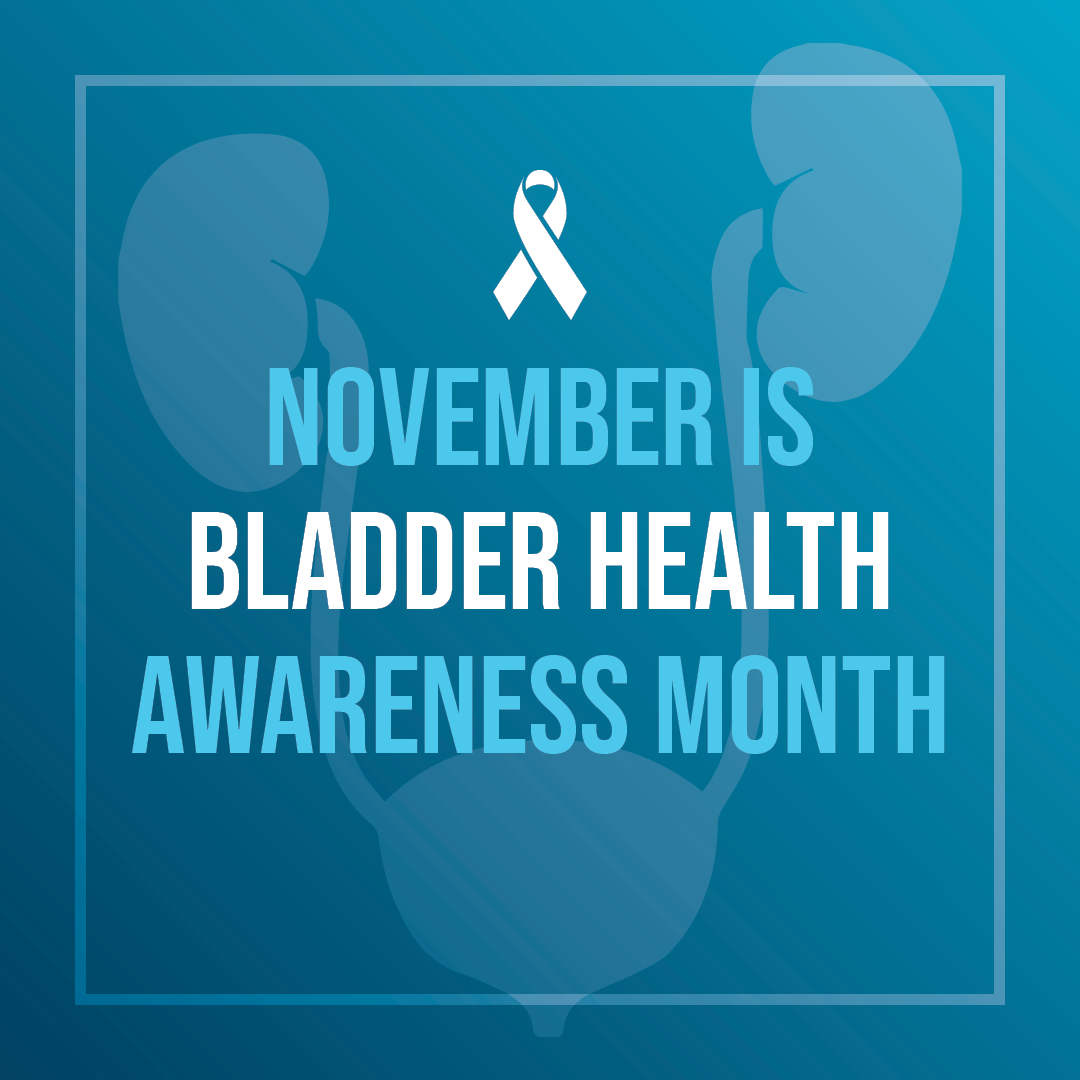5 Tips to Keep Your Bladder Healthy
Bladder Health Month in November aims to raise awareness about various bladder-related conditions, promote bladder health, and educate people about ways to maintain a healthy bladder. During this month, healthcare professionals, organizations, and advocacy groups often share information about bladder health, common issues like urinary incontinence, urinary tract infections (UTIs), bladder cancer, and ways to prevent and manage these conditions through lifestyle changes, proper hydration, diet, and medical intervention when necessary. The goal is to encourage discussions, provide resources, and empower individuals to manage their bladder health.
Many people do not talk with their doctor about their bladder health symptoms because they are embarrassed or do not know that they could indicate a health issue. This month, the Urology Care Foundation encourages people to track their bladder health and talk with their doctors to stay in charge of their bladder health.
“Raising bladder health awareness and encouraging people to talk to professionals about their bladder health symptoms is a critical first step in eliminating the stigma associated with bladder-related conditions and disease,” says Stephen Siegel, MD, urologist at Boulder Medical Center.
To keep things simple, here are five tips for staying in control of your bladder health.
Drink up!
Staying hydrated is vital to maintaining a healthy urinary system. The amount a person should drink varies, but drinking enough fluids so that you need to urinate every few hours is an excellent rule of thumb. Pay attention to whether what you drink and when it affects your bladder symptoms. Some drinks, like alcohol or citrus juices, can worsen symptoms for some bladder health conditions.
Watch When You Wee
Tracking your urination can be an excellent tool for gauging your bladder health. Tracking how often you urinate, how urgently the need to urinate comes on, and whether you experience other symptoms with urination, such as pain or bleeding, are all valuable data for your doctor when discussing bladder health. Use the UCF Bladder Control Assessment Tool to begin tracking your symptoms.
Move It!
Exercise is part of a healthy lifestyle, but did you know it could impact your bladder health? Regular exercise can relieve symptoms of bladder inflammation and bladder pain syndrome, and kegel exercises can help improve incontinence. May first-line treatments for bladder health conditions include physical therapy and exercise.
Know Your Meds
Medications or medication interactions could affect your bladder. Pay attention to whether certain medications correlate with worsening bladder symptoms and discuss the changes with your doctor. There may be other treatment options that work better for you!
Talk To Your Doc
Talking about your bladder symptoms could be the most challenging yet essential part of improving your health. The better your healthcare provider knows the level and impact of your symptoms on your quality of life, the better they can help you manage them. Even if you are not bothered much about mild symptoms, you and your healthcare provider may want to discuss what treatment options are available to you. Find a urology care expert in your area.
About Urology at Boulder Medical Center
Stephen Siegel, MD, and Katie Bennett, PA-C

 The Boulder Medical Center urology team diagnoses and treats various conditions associated with the male and female urinary tract. Dr. Stephen Siegel’s practice is a designated UroLift® Center of Excellence, offering the full spectrum of adult care.
The Boulder Medical Center urology team diagnoses and treats various conditions associated with the male and female urinary tract. Dr. Stephen Siegel’s practice is a designated UroLift® Center of Excellence, offering the full spectrum of adult care.
Learn More about the Boulder Medical Center Urology Team
- Call 303-440-3093 for an Appointment
- Read: Stephen Siegel, MD: Designated UroLift® Center of Excellence

